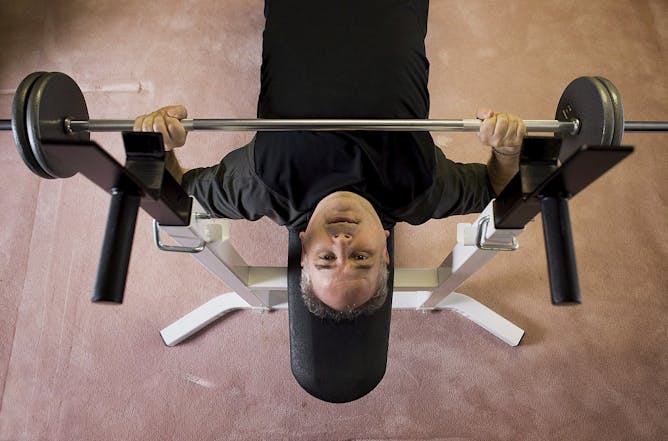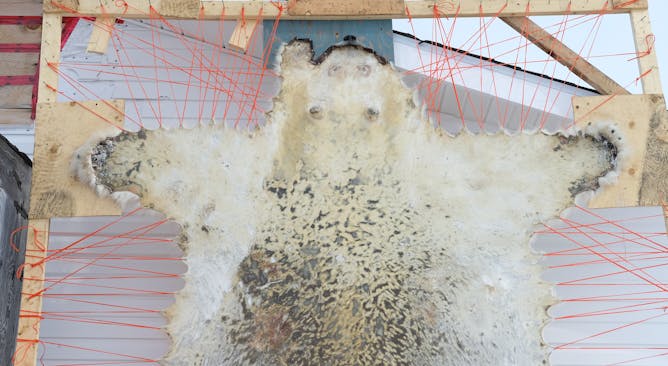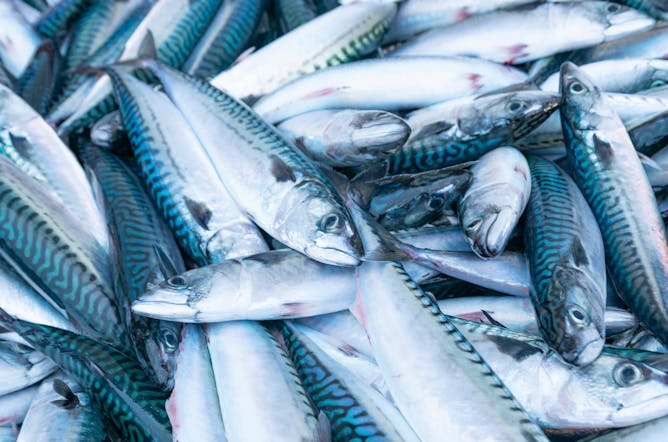|
In medicine, a treatment that saves lives, improves quality of life, saves money and is supported by clear evidence should be a slam-dunk. Especially if it treats heart disease — the second-biggest cause of death in Canada.
So why do fewer than one-quarter of heart patients get cardiac rehab?
Today in The Conversation Canada, Sherry Grace of York University explains that cardiac rehab includes exercise, diet, lifestyle and psychosocial elements, and significantly reduces the risk of a future cardiac event. That’s why researchers have been exploring solutions to increasing its use, including improving accessibility and changing the way the health system funds it.
Also today:
All the best,
|

|
Patricia Nicholson
Health + Medicine Editor
|
|

Cardiac rehab is an outpatient chronic disease management program covering exercise, diet, lifestyle and psychosocial elements in hour-long sessions about twice per week over several months.
THE CANADIAN PRESS/Aaron Vincent Elkaim
Sherry L. Grace, York University, Canada
Cardiac rehabilitation is a low-cost approach with proven benefits for heart patients, that drastically lowers future cardiac risks. So why do only 10 to 25 per cent of heart patients access it?
|

Drying polar bear skin in Hopedale, Nunatsiavut.
(Eldred Allen)
Jamie Snook, Dalhousie University
International proposals to ban the trade of polar bear parts undercut Inuit rights, knowledge and decision-making.
|

Finance Minister and Deputy Prime Minister Chrystia Freeland and Prime Minister Justin Trudeau leave a media scrum before the release of the federal budget on Parliament Hill, in Ottawa on April 7, 2022.
THE CANADIAN PRESS/Sean Kilpatrick
Simon Pek, University of Victoria
For Canadians hoping to emerge from the pandemic with better jobs, a stronger economy and reduced inequality, employee ownership combined with employee participation is a promising way to get there.
|

It’s possible that COVID-19 has created an opportunity to introduce more pass/fail grading options.
THE CANADIAN PRESS/Nicole Osborne
Don A. Klinger, University of Waikato; Corrie Rebecca Klinger, University of Waikato; Louis Volante, Brock University
COVID-19 has challenged teachers’ abilities to provide students with chances to learn and to report on student learning.
|

Prime Minister Justin Trudeau paints Easter eggs with newly arrived Ukrainian and Iranian children at the Ukrainian Community Outreach Centre in Edmonton on April 12.
THE CANADIAN PRESS/Jason Franson
Stephanie J Silverman, York University, Canada
The ‘air bridge’ for Ukrainians to Canada has the potential to be more promising than anything else in recent Canadian refugee history. Canadians should support and celebrate it.
|

We need a positive vision for sport in Canada — something to fight for, not just fight against.
(Shutterstock)
Jennifer Walinga, Royal Roads University
Athletes from multiple NSO’s in Canada are rising up in hurt and anger to denounce toxic cultures and linking arms to demand a respectful, healthy and inclusive sport system for all.
|

Spring herring and Atlantic mackerel fisheries are among the most lucrative in the Gulf of St. Lawrence, and brought in more than $1.3 billion to Québec and Atlantic fishers in 2020.
(Shutterstock)
Dominique Robert, Université du Québec à Rimouski (UQAR); Pablo Brosset, Institut Agro Rennes-Angers
Suspending mackerel and spring herring fishing in the southern Gulf of St. Lawrence will impact the fishing industry on many levels.
|
La Conversation Canada
|

Les recherches montrent que les pieuvres sont des créatures sensibles qui vivent des émotions.
(Shutterstock)
Kristin Andrews, York University, Canada
Les pieuvres sont des animaux sociaux et sensibles qui construisent des villes et établissent des hiérarchies. L’idée de les domestiquer a des implications écologiques et éthiques.
|
Ukraine Invasion
|
-
Jonathan Este, The Conversation
Eastern Ukraine braces for a fresh onslaught by Russia’s war machine.
-
Susanne Sternthal, Texas State University
A Russian journalist and political operative reveals that Russian leadership is planning for the complete destruction of Ukraine
-
Michael A. Allen, Boise State University; Matthew DiGiuseppe, Leiden University
Russia is on the verge of defaulting on its foreign debt, which not only could have severe economic consequences but could also complicate Putin’s ability to wage a prolonged war in Ukraine.
|
|
Business + Economy
|
-
Anjana Susarla, Michigan State University
Twitter, more than other social media platforms, fosters real-time discussion about events as they unfold. That could change if Musk gains control of the company.
|
|
COVID-19
|
-
Zoe Duby, South African Medical Research Council
The loss of income, economic and food insecurity, fear of infection, and death of family members resulted in feelings of frustration, anxiety and depression.
|
|
Environment + Energy
|
-
Kimberly Nicholas, Lund University
A new study finds congestion charging and creating car-free streets and separated bike lanes have been most effective at reducing car use in European cities.
|
|
|
|
| |
| |
| |
| |
|
|